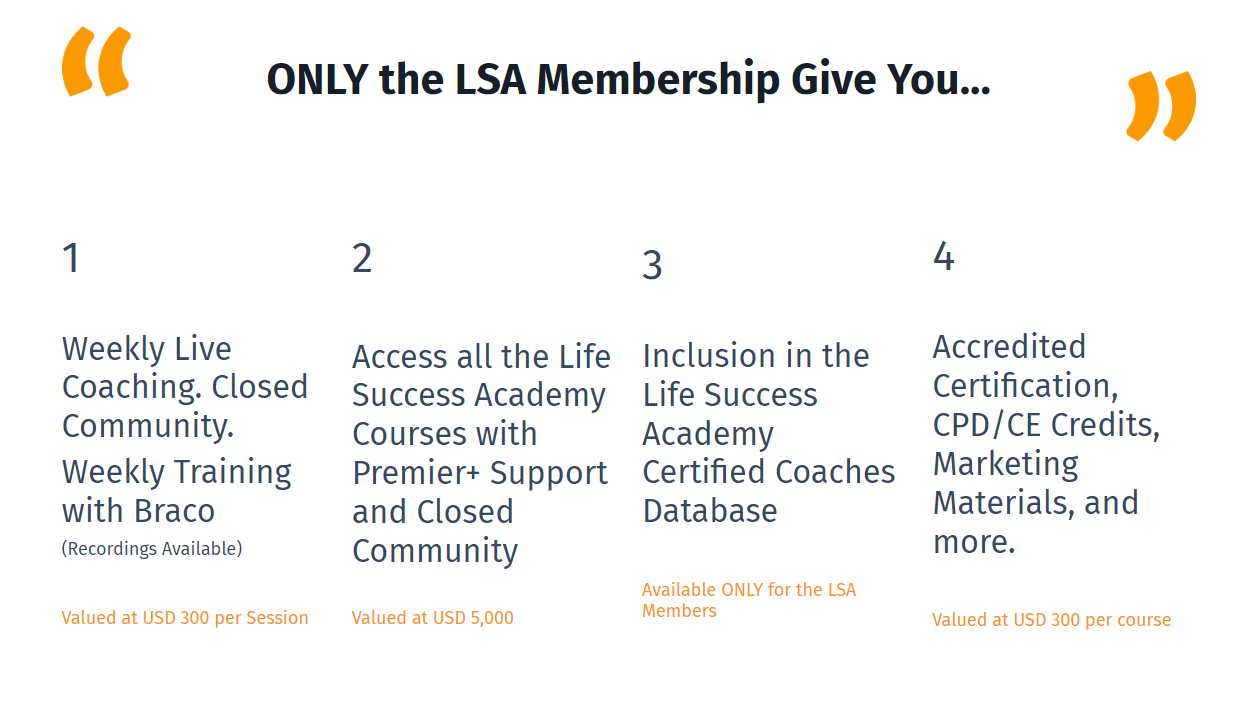Empowering Clients: 10 Powerful Tools Coaches Use to Help Overcome Self-Doubt
Jul 05, 2023
KEY POINTS:
-
Understanding Self-Doubt
-
Empowering Tools for Overcoming Self-Doubt
-
Cultivating Self-Belief and Resilience
________________________________________________________________________________
Introduction: With my extensive experience coaching individuals and organizations since 1984, I have witnessed the detrimental effects of self-doubt on personal and professional growth. To help individuals conquer their self-doubt, I have delved into a wide range of books covering topics such as business, coaching, biography, history, philosophy, and psychology. In this blog post, I will share ten of the most transformative tools that coaches use to empower clients in overcoming self-doubt. These tools have been proven effective in my own coaching practice, and I highly recommend them as a starting point for anyone seeking to support others in their journey towards self-belief and success.
- Mindfulness and Self-Awareness: Description: Encourage clients to cultivate present-moment awareness through mindfulness techniques like meditation, deep breathing exercises, or body scans. This practice helps them observe their thoughts and emotions without judgment and promotes a non-reactive mindset.
Example: A client experiencing self-doubt can practice mindfulness before a challenging presentation. By focusing on their breath, they anchor themselves in the present moment, alleviate anxiety, and allow their confidence to shine through.
Positive Outcomes: Enhanced self-awareness helps clients identify self-doubt triggers, recognize negative thought patterns, and develop a sense of inner calm and confidence.
- Cognitive Restructuring and Reframing: Description: Guide clients in identifying negative self-talk and help them reframe it into positive, realistic, and supportive statements. Encourage the use of affirmations and positive self-talk to reinforce the new beliefs.
Example: If a client doubts their ability to succeed in a new role, help them reframe their thoughts from "I'm not qualified for this position" to "I have the skills and experience necessary to excel in this role. I am capable of learning and growing."
Positive Outcomes: Cognitive restructuring empowers clients to develop a positive mindset, build self-confidence, and replace self-doubt with self-belief, leading to increased motivation and improved performance.
- Goal Setting and Action Planning: Description: Assist clients in setting specific, measurable, attainable, relevant, and time-bound (SMART) goals. Guide them in creating action plans that outline the steps required to achieve their objectives. Encourage regular progress tracking and celebrate milestones along the way.
Example: If a client doubts their ability to launch a new business, help them set SMART goals such as creating a business plan, securing funding, and developing a marketing strategy. Break down each goal into actionable tasks and establish timelines for completion.
Positive Outcomes: Goal setting and action planning provide a sense of direction and purpose, boosting self-confidence and motivation. Achieving milestones along the way reinforces clients' belief in their abilities and helps them overcome self-doubt.
- Visualization and Imagery: Description: Guide clients in using visualization techniques to create vivid mental images of themselves successfully overcoming challenges and achieving their goals. Encourage them to engage their senses and emotions to enhance the experience.
Example: Before a crucial performance, a client can visualize themselves confidently executing each step, feeling a sense of accomplishment, and receiving positive feedback from others.
Positive Outcomes: Visualization enhances self-belief, reduces anxiety, and primes clients' minds for success by creating a mental blueprint of desired outcomes.
- Building a Supportive Network: Description: Emphasize the importance of surrounding oneself with a supportive network of friends, family, mentors, or fellow professionals who provide encouragement, guidance, and constructive feedback.
Example: Encourage clients to actively seek out and engage with individuals who share their goals and can offer support and inspiration. This network can serve as a source of motivation during challenging times.
Positive Outcomes: A supportive network provides encouragement, accountability, and a safe space for clients to share their challenges and successes, bolstering their self-confidence and resilience.
- Developing Self-Compassion: Description: Help clients cultivate self-compassion by encouraging them to treat themselves with kindness, understanding, and forgiveness. Guide them to reframe self-critical thoughts and practice self-care.
Example: If a client makes a mistake, guide them to respond with self-compassion by acknowledging that mistakes are a natural part of learning and growth, and offering themselves understanding and support.
Positive Outcomes: Self-compassion fosters resilience, reduces self-judgment, and promotes a nurturing internal dialogue, allowing clients to bounce back from setbacks and maintain their self-belief.
- Identifying and Leveraging Strengths: Description: Assist clients in identifying their unique strengths, talents, and abilities. Encourage them to focus on leveraging these strengths in their personal and professional pursuits.
Example: Help a client recognize their strong problem-solving skills and suggest they apply these skills to tackle challenges that may trigger self-doubt.
Positive Outcomes: Emphasizing strengths enhances self-confidence and self-efficacy, empowering clients to overcome self-doubt by acknowledging their capabilities.
- Encouraging Self-Reflection and Journaling: Description: Promote self-reflection by encouraging clients to engage in journaling or reflective exercises. This practice allows clients to gain insights into their thoughts, emotions, and patterns of self-doubt.
Example: Prompt clients to write about moments when they have successfully overcome self-doubt in the past and the strategies they used. Encourage them to reflect on what they can learn from those experiences.
Positive Outcomes: Self-reflection promotes self-awareness, insight, and personal growth, enabling clients to identify patterns of self-doubt and develop effective strategies to overcome it.
- Practicing Gratitude: Description: Introduce clients to the practice of gratitude by encouraging them to cultivate a daily gratitude practice. This involves identifying and appreciating the positive aspects of their lives.
Example: Encourage clients to keep a gratitude journal and write down three things they are grateful for each day. They can include accomplishments, supportive relationships, personal qualities, or simple moments of joy.
Positive Outcomes: Gratitude shifts clients' focus from self-doubt to appreciation, fostering a positive mindset, and building resilience in the face of challenges.
- Embracing Failure and Learning: Description: Help clients reframe failure as an opportunity for growth and learning rather than a reflection of their worth or abilities. Encourage them to view setbacks as stepping stones towards success.
Example: Guide clients to explore the lessons learned from past failures and identify the skills and knowledge gained from those experiences. Help them see failure as an essential part of the journey towards success.
Positive Outcomes: Embracing failure as a learning experience reduces fear and self-doubt, allowing clients to bounce back stronger, wiser, and more resilient.
Conclusion: Self-doubt can hinder personal and professional growth, but with the right tools, individuals can overcome this challenge. By incorporating mindfulness, cognitive restructuring, goal setting, visualization, building a supportive network, developing self-compassion, identifying strengths, practicing self-reflection, gratitude, and embracing failure as an opportunity, coaches can empower their clients to transform self-doubt into self-belief and achieve their full potential. These tools provide the foundation for individuals to navigate challenges with confidence, resilience, and a growth mindset. Remember, self-belief is within reach, and with consistent practice, individuals can conquer self-doubt and embark on a path to success and fulfillment.
References:
-
Gilbert, D. (2007). Stumbling on Happiness. Vintage Books.
-
Brown, B. (2010). The Gifts of Imperfection: Let Go of Who You Think You're Supposed to Be and Embrace Who You Are. Hazelden Publishing.
-
Research Paper: Neff, K. D., Kirkpatrick, K. L., & Rude, S. S. (2007). Self-compassion and adaptive psychological functioning. Journal of Research in Personality, 41(1), 139-154. doi:10.1016/j.jrp.2006.03.004
Note: These references cover a range of topics relevant to the tools and concepts discussed in the article, including mindfulness, self-compassion, reframing, and personal growth. "Stumbling on Happiness" by Daniel Gilbert provides insights into the psychology of happiness and how individuals can navigate self-doubt. "The Gifts of Imperfection" by Brené Brown explores the importance of self-acceptance and vulnerability in overcoming self-doubt. The research paper by Neff, Kirkpatrick, and Rude delves into the concept of self-compassion and its positive impact on psychological well-being. These resources offer both practical guidance and empirical evidence to support coaches in helping individuals conquer self-doubt.
Braco Pobric is an Internationally Recognized Positive Psychology Expert, Executive Coach, and Corporate Trainer. He is the bestselling author of Habits and Happiness: How to Become Happier and Improve Your Wellbeing by Changing Your Habits. Braco is a founding member and Chief Happiness Officer of the Life Success Academy, Certified Positive Psychology Master Coach and Trainer, and former globally Certified Trainer and Business Coach for Dale Carnegie Training. His unique approach to integrated learning in Positive Psychology Coaching (PPMC) program let him train over 60,000 Students in 172 countries.
Stay connected with news and updates!
Join our mailing list to receive the latest news and updates from our team.
Don't worry, your information will not be shared.
We hate SPAM. We will never sell your information, for any reason.



